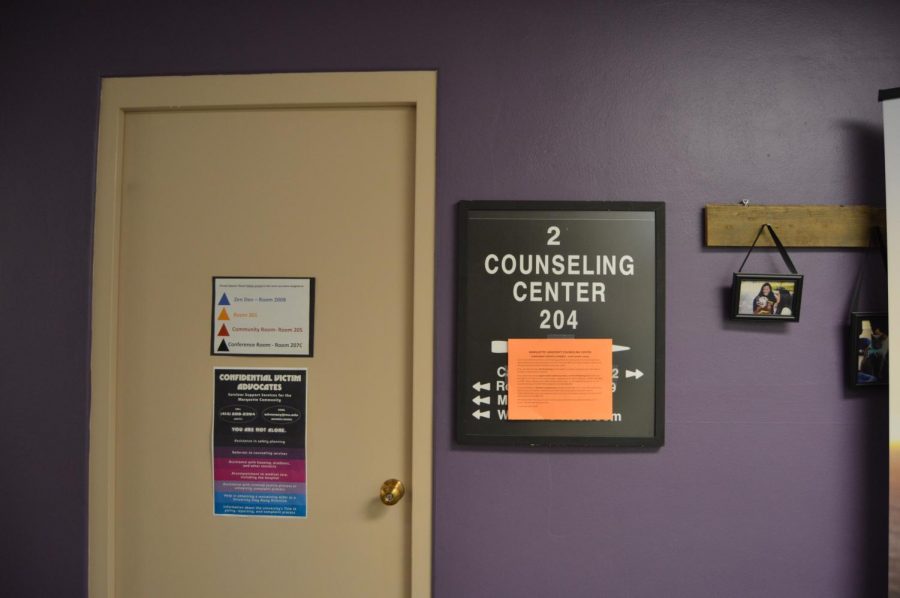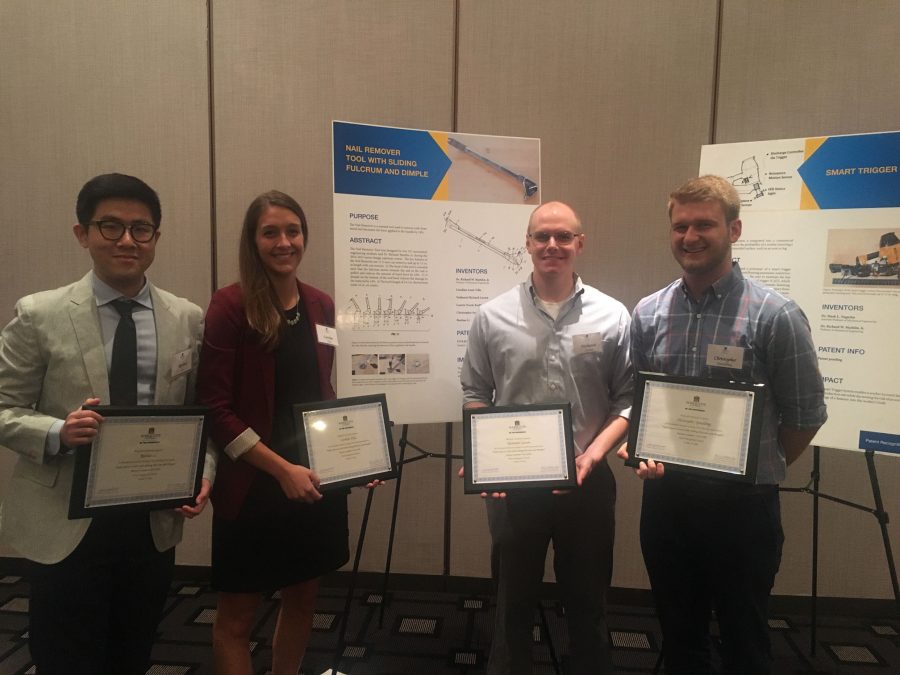On top of the hefty work load a graduate student receives, Becky Anderson — who is working toward a Master of Science in Nursing — has also taken on stress brought by COVID-19. This stress has left Anderson feeling isolated.
“I did not recognize the toll that the state of our world was taking on my mental health,” Anderson said in an email. “Not only has it inflicted levels of stress and anxiety that some of us (graduate students) have never experienced, but it isolated us from the people and places we turn to in order to process some of those feelings.”
Mental health continues to be a topic of concern among graduate students, as a survey that drew responses from nine U.S. research universities indicated that signs of depression and anxiety amid this demographic have doubled during COVID-19.
Although professors have taken circumstances regarding COVID-19 into consideration, Anderson said less homework is “not really an option.”
“While the circumstances surrounding this past year are unique, we are still held responsible to demonstrate a high level of knowledge and understanding of the profession that we are entering,” Anderson said in an email.
Marquette’s Mental Health Days also don’t apply to students in Law School, School of Dentistry and some of the Health Sciences professional programs. Anderson has been unable to participate in mental health day activities.
Erin Ahlgrim, another graduate student at Marquette, is also no exception to the challenges graduate students have faced amid the pandemic.
Ahlgrim finished her undergraduate degree last May — around two months after Marquette switched to online learning. Only one week after she completed her undergraduate degree did Ahlgrim begin her graduate program toward a Master of Science in Nursing. The program was fully virtual for the first semester.
However, amid the fast-paced environment Ahlgrim has immersed herself in, she said it’s important to prioritize.
“In times of stress, it is easy to neglect our mental health unless we learn to prioritize,” Ahlgrim said in an email. “There will always be more tasks to accomplish, and if we do not take time to focus on ourselves mentally, we will run ourselves into the ground.”
However, graduate students are not alone in battling mental health issues.
Nicholas Jenkins, a counselor and coordinator of mental health advocacy, said the Counseling Center has seen many graduate students and encourages them to call when feeling overwhelmed.
Students who are looking to make an appointment at the Counseling Center should call 414-288-7172, as walk-ins are currently suspended due to COVID-19.
“Graduate students are one of the populations that struggle most with trying to find balance,” Jenkins said in an email. “Many graduate students are trying to balance academics, an assistantship, research, thesis/dissertation, and other life stressors.”
Along with the Counseling Center, Marquette also offers the app and online mental health platform “Silver Cloud.”
“Anyone in the Marquette community can access Silver Cloud for free and can learn how to address a variety of different issues,” Jenkins said in an email. “We currently have access to 6 different programs with Silver Cloud that include: depression, anxiety, stress, anxiety and depression (combined), sleep, resilience and COVID-19.”
There are also organizations, like the Marquette Graduate Student Organization, that Jenkins said “helps graduate students have a voice and get their needs met.”
However, regardless of the path students take to receive help, Jenkins said addressing these issues are important as mental and physical health go hand-and-hand.
“Issues with stress and mood can manifest into physical symptoms that can include headaches, stomach aches, sleep disturbances, fatigue, heart palpitations and that is just naming a few of the many things that can happen,” Jenkins said in an email.
According to a 2018 report from the Center for Disease Control and Prevention, mental illness, especially depression, increases the risk for many types of physical health problems, particularly long-lasting conditions like stroke, type 2 diabetes and heart disease.
Long-lasting conditions may be a future issue for graduate students, as a 2018 survey by Inside Higher Ed showed that 39% of graduate student respondents scored in the moderate-to-severe depression range, as compared to 6% of the general population.
However, students can reduce the risk of receiving these long-lasting conditions by relatively simple tasks.
“Try to treat studying/academics like a job and then give yourself some time to relax, engage in non-academic mental stimulation, exercise, eat right and have a cool down time prior to going to sleep,” Jenkins said in an email. “Even dedicating 20 minutes a day to some self-care can have a significant impact.”
Although graduate school and COVID-19 can lead students to feel stressed, Jenkins said pushing aside one’s mental health will only worsen overall well-being, therefore encourages students to receive help in whatever format best suits their needs.
This story was written by Claire Driscol. She can be reached at claire.driscol@marquette.edu









